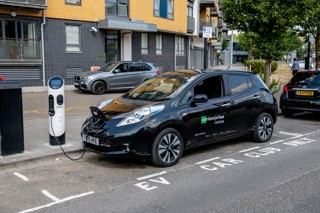Karl Howkins, managing director at Sogo Mobility
The future of mobility has been much hyped in recent years.
A report from KPMG forecasts the mobility ecosystem will grow to a global value of more than $1 trillion by 2030.
However, with the closure of some well-known operators in the industry, commentators have questioned if consumers are ready to move away from traditional ways of owning or leasing vehicles.
With the economy facing headwinds and a recession forecast for this year, 2023 may be the year that mobility breaks through.
It’s clear from conversations that Sogo has with small business owners and consumers across the UK that a more flexible approach is appealing.
American political consultant James Carville popularised the saying ‘it’s the economy stupid’ in the early 1990s, and it could accurately describe the current mobility market.
Small businesses are seeking more flexibility in the current economic climate.
The ability to scale up or down according to demand is essential.
Additionally, it keeps the asset off the balance sheet, which is advantageous in times of economic uncertainty.
Monthly leasing frees capital from the balance sheet that can be deployed elsewhere in the company to fund growth.
While many managers may not yet be able to transition out of traditional lease models immediately, it’s useful to start thinking about the mix across fleets.
The ability to change a vehicle has always appealed to some drivers, but the logistics have proven a barrier.
Advances in technology and the supply chain now mean it’s as easy to order a vehicle as it is to summon an Uber. If mobility is to appeal to a broader demographic, it must be frictionless.
The industry has some work to do to educate buyers about the pros and cons of flexible leasing or subscription services, as some have dubbed the sector.
While fleet managers are familiar with the total cost of ownership (TCO), many consumers will need to familiarise themselves with the concept.
The headline price will appear higher on a monthly basis compared to a longer-term lease or personal contract purchase (PCP).
However, it includes routine maintenance, breakdown, road tax, insurance, and EV extras such as charge cards. Users also avoid initial payments.
Undoubtedly, the transition to electric vehicles (EVs) is also driving a shift toward greater flexibility and mobility.
For example, a small business can test an EV for a month to prove its use case and then expand the fleet as needed.
Flexible leasing also allows drivers to keep up with the rapid advances in EV technology rather than be locked in a previous generation of EV for the duration of a long lease.
The fleet sector has played a pivotal role in the adoption of EVs.
A beneficial tax regime has made an EV an obvious choice for many fleet drivers.
It’s essential that government continues to support more drivers into EVs through tax incentives and grants.
There is also plenty of evidence to suggest that younger consumers, Millennials and Gen Z, prefer a more flexible approach to mobility.
According to a report by Inkwood Research, around one-third of those groups indicated that they prefer driving various cars.
It seems a clear choice for a generation struggling with financial anxiety and seeking to make more environmentally-friendly choices.
Sogo's rapid growth over the last two years has been driven by increasing demand for a more flexible approach to mobility, and it’s clear that the concerns about the economy are continuing to be a significant factor.
It’s a sector that is attracting new operators, manufacturers, dealer groups and traditional fleets.
The customer will determine the winners and losers, who no doubt will continue to look for excellent service, flexibility and value from their provider.





















Login to comment
Comments
No comments have been made yet.